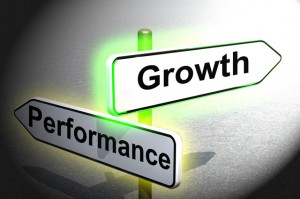Q: What do Enron, Lehman Brothers, BP, and Toyota screw-ups have in common?
A: Tunnel vision on growth, abetted by hubris, diverting concentration from quality performance. The subtle version of this is “incautious optimism” that growth will let us clean up its problems later.
In the cases of Enron and Lehman, irrational growth exuberance led them to invent wealth that didn’t exist, creating illusions that led others to destruction too. Only the narrowest financial tunnel vision can excuse such blatant deception.
Harder to see is incautious optimism. BP and Toyota rationally framed the world based on expansion. They fell victim to this framework’s incautious optimism.
BP’s proclamations of corporate social responsibility (and performance improvement gains) were not good enough. Deepwater Horizon is the latest of several safety and environmental disasters. (See the “Energy Blowout” Update)
Toyota was the world’s #1 corporate role model before entering the growth sweepstakes. To grow, short product development times were vital, but Toyota overran its learning speed. Unfortunately, besides cutting waste, they shortcut some NPD tests and failed to master complex, software dependent systems. (See “Learning from Toyota’s Stumbles” Update.) If Toyota can become incautious, anyone can.
Top managers at BP and Toyota publicly apologized. However, only improvement at the working level everywhere in an organization helps prevent debacles, somewhat like Chicago burning because Mrs. Murphy’s cow kicked over a lamp. Precaution is not putting a lamp where a cow can kick it. Only people on the scene, familiar with its technology can ask enough questions to design precaution into procedural details. Today’s best, watered down by incautious optimism, is not good enough.
Although definitive investigation will take a long time, the Deepwater Horizon blowout occurred as drilling neared completion, cementing and sealing off the well (Cris Helman’s blog). Capping a blowout could force re-doing a $100 million drill job. Deepwater Horizon had the latest failsafe technology to stop a blowout, setting up sort of a Titanic mentality. By early reports, workers tried to activate the blowout preventer and it failed, but it’s easy to see how they would be tempted to delay or to run a few red lights to save the well. When success or failure is critical to us all, money must be a minor factor in judgment before a disaster. Afterward, it always is.
Financial growth frames thinking about the future in incautious optimism. Assuming unending expansion, errors and accidents are mere cost delays in ongoing growth. Business blogs framed the Deepwater Horizon story as how much it would cost, for whom, and whether BP would shoulder it all as they promised. And of course, the hit on earnings per share, stock prices, and market caps of major companies implicated: BP (rig operator), Transocean (rig owner), Cameron (maker of the blowout preventer, or BOP), and Halliburton (the cementing contractor).
To prevent a point-cause disaster or to fix one, the people who have to perform to perfection are the few in position to preclude a potential disaster or to minimize it afterward, no matter who they “report to.” In complex technological work, that’s how it is. Organizations that are responsible for this need to become vigorous leaning enterprises.
All of us may have to help remediate problems like the perils of the bees (see Update “The New Fable of the Bees”). Causes and responsibilities seem amorphous, and it’s a slow-evolving disaster, not evoking the urgency of a major oil spill. Lots of people will have to help clean up oily Gulf waters too, regardless of who caused the leak. It helps if we can do so without delays squabbling about self-interest.

